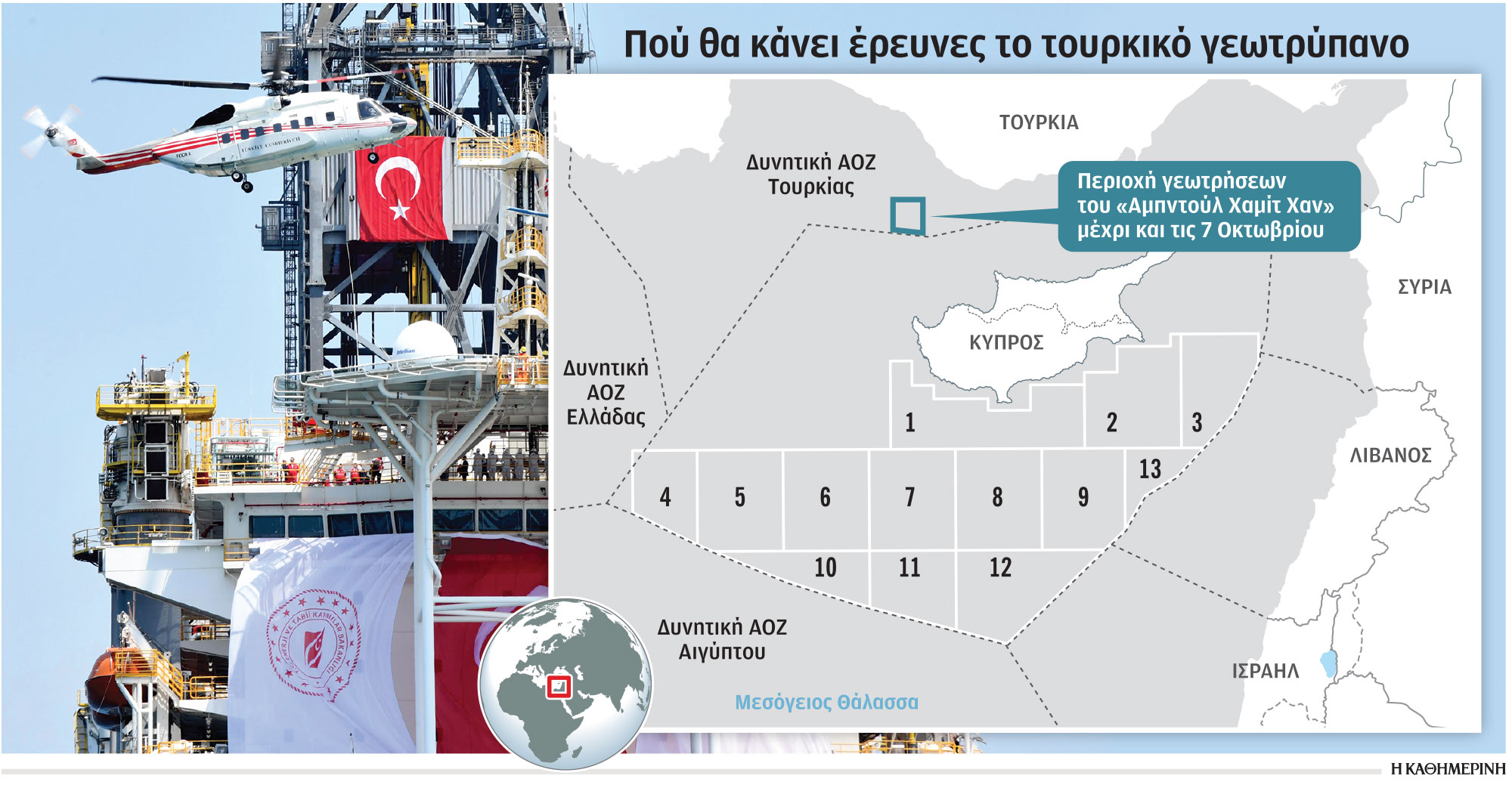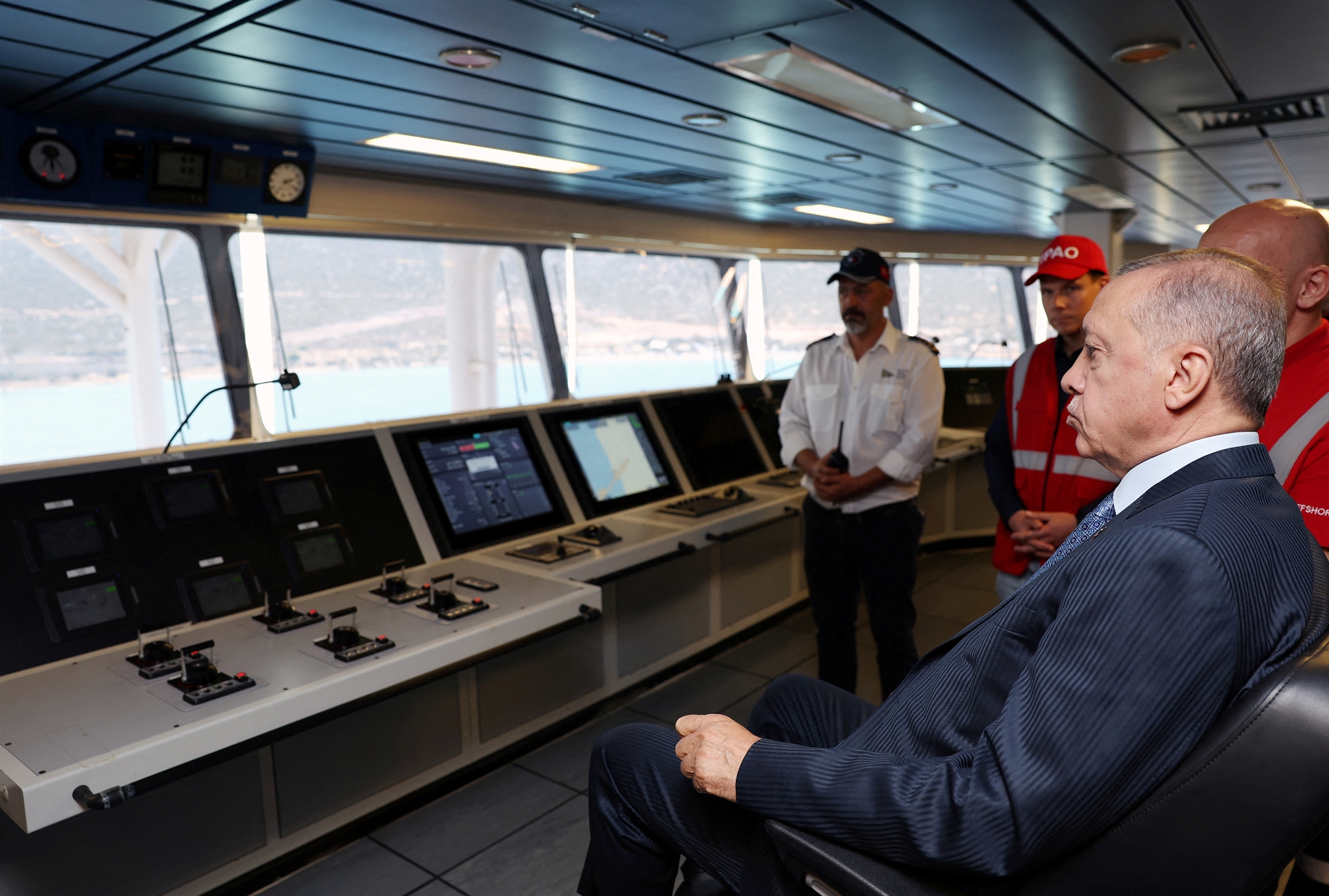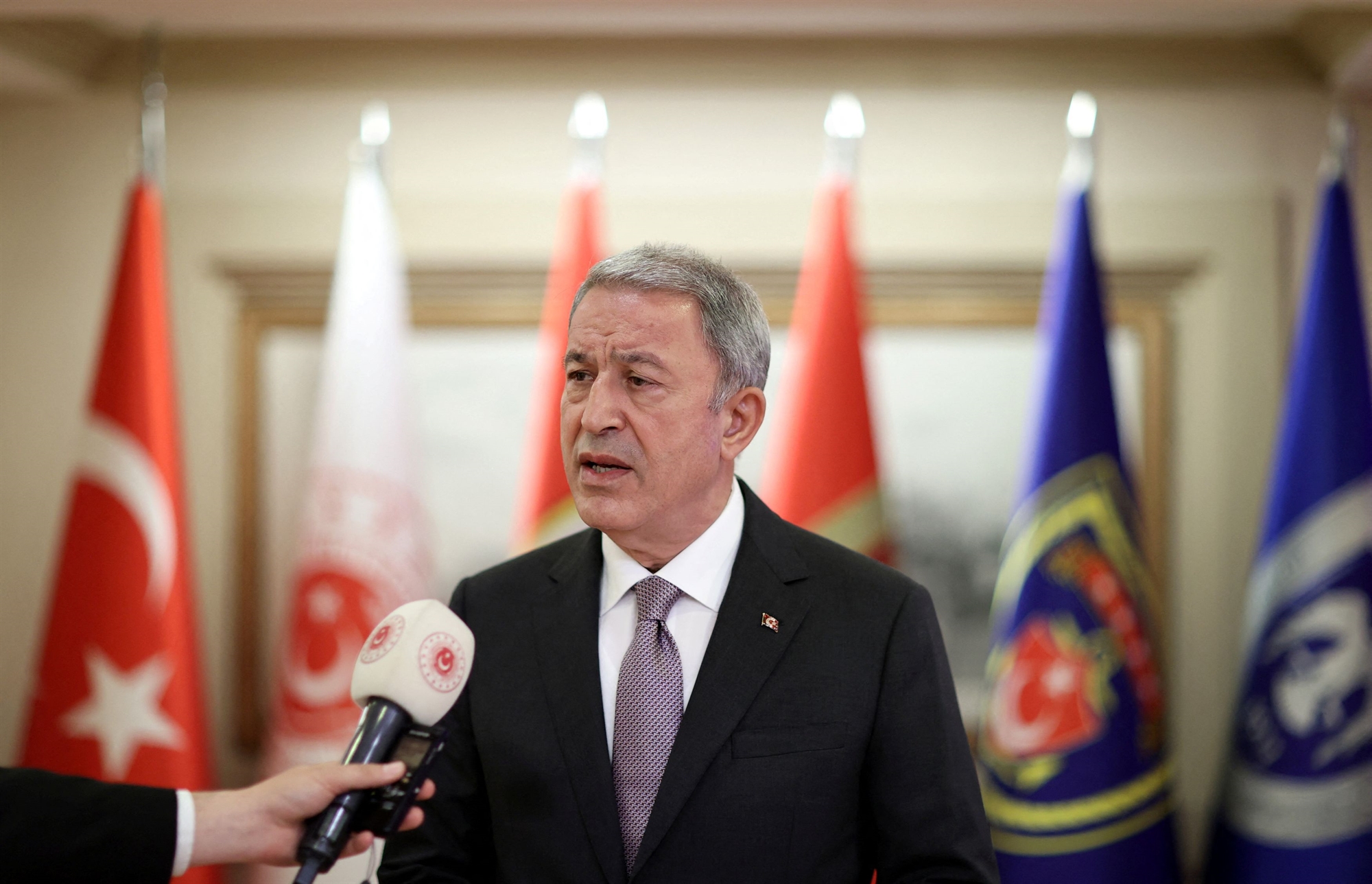
The most restrained scenario considered Athenabut also his partners in relation to his investigations floating drilling rig “Abdul Hamid Khan”Turkish President said yesterday Recep Tayyip Erdogan from the port of Mersin. Mr. Erdogan announced the deployment of a floating drilling rig in the region of 29 nautical miles (about 55 kilometers) from Gazibas, practically on the borders of the Gulf of Antalya, within the Turkish continental shelf. Based NAVTEX almost immediately reported (770/22) “Abdul Hamid Khan” will move in the area until October 7, 2022. The choice of Mr. Erdogan, despite the show held yesterday in Mersin and rhetorical exaggeration, reflects the desire for a – limited – period of calm in Eastern Mediterranean. According to some calculations, around the end of September there will be a relatively accurate picture of the situation at the Yorukler 1 site, where Abdul Hamit Khan will be exploratory drilling, and then it will be seen whether the Turkish Oil Company (TRAO ) decides to expand the business or move on to the next steps.
In Athens, Erdogan’s attitude is estimated to have been shaped not only by the Turkish president’s internal calculations, but also by the intense diplomatic background that developed on many and multiple levels in the previous time period. Messages reaching Athens from Washington as well as Berlin they proposed the direction of strategic balances from Erdogan’s side. At least from Washington, pressure on Ankara throughout the previous period was intense and in the direction of the need to preserve its unity NATO at a time when the credibility of the alliance is being judged, on the occasion of the war. The role of the g.c. NATO’s Jens Stoltenberg, whom Mr. Erdogan considers a reliable interlocutor, also played a particularly important role in the developments.
Athens is not complacent about long-term performance, as Erdogan noted that the drilling rig would then move to another location.
Of course, in Athens they are not satisfied with long-term performance, since yesterday Mr. Erdogan himself noted that after October, Abdul Hamid Khan will continue drilling elsewhere. “Our ship, having finished drilling in this area, will not stop and will go to other places. And we’ll keep looking until we find it. The seismic exploration and drilling that we carry out are carried out in the territories under our sovereignty. That’s why we don’t need to get anyone’s permission or approval,” Mr. Erdogan said pointedly.

The Turkish president has also followed the habit he tends to establish whenever he speaks of Greece, singling out some person or some historical event that heralds some kind of Greek defeat or unpleasant memory. Yesterday, Mr. Erdogan recalled the battle of Domokos during the unsuccessful war of 1897, when Greek troops were defeated by the Ottoman army and the territorial integrity of the kingdom was preserved thanks to the intervention of Western powers. It was named after Edem Pasha, the commander-in-chief of the Ottoman troops in 1897, who, of course, served under Sultan Abdul-Hamid, after whom the floating drilling rig was named. “Neither puppets, nor those who hold them by the strings, can prevent us from getting what we deserve in the Mediterranean. However, those who meet the name of Abdul-Hamit Khan in the Mediterranean Sea may remember Eden Pasha and the Battle of Domoko!” he said characteristically.
Ankara’s message about persistence in claims
A reminder message that the decision to operate the Abdul-Hamid Khan in the uncontested areas of the Eastern Mediterranean should not be made by Athens, since Ankara’s refusal of the main Turkish claims in the Aegean Sea, are the statements of the Turkish Minister of National Defense yesterday. , Hulusi Akarwhich persistently keeps the issue of the demilitarization of the Aegean Islands on the surface, focusing once again on Kastelorizo.

“There is a question about Kastelorizos. This island, Kastelorizo, is located 580 kilometers from mainland Greece. So far, we are only 1,950 meters away,” Mr. Akar said revealingly, echoing a new Turkish theory linking sovereignty with… remoteness from the mainland. “It is within reach of cadets of our military schools. The other day the Greek minister said: “If they want, let them come if they know how to swim,” and we replied: “If God wills, someday this can happen.” Mr. Akar again mentioned demilitarization based on the Lausanne Treaty and the Paris Treaty and confirmed that Ankara is ready for negotiations. Government spokesman Yiannis Oikonomou commented on the claims, saying it was “rhetorical exaggeration and an auction of challenges that adds nothing more to Greek-Turkish relations.” As for the swimmers, Mr. Economou said that “it is a good idea to have a peaceful race on the high seas with the Greeks and the Turks. It is better to look at the matter more calmly and, focusing on international law, not to create hotbeds of tension.”
Meanwhile, on the occasion of the commencement of drilling with Abdul Hamit Khan yesterday, PASOK President Nikos Androulakis called on the international community to “stop ostriching in the face of Mr. Erdogan’s ongoing challenges.” And he stressed that “the policy of appeasement is a dead end. Concrete deterrence initiatives are needed that will highlight the broken front in the defense of international law, such as the imposition by European countries of an arms embargo on Turkey.”
Source: Kathimerini
Robert is an experienced journalist who has been covering the automobile industry for over a decade. He has a deep understanding of the latest technologies and trends in the industry and is known for his thorough and in-depth reporting.